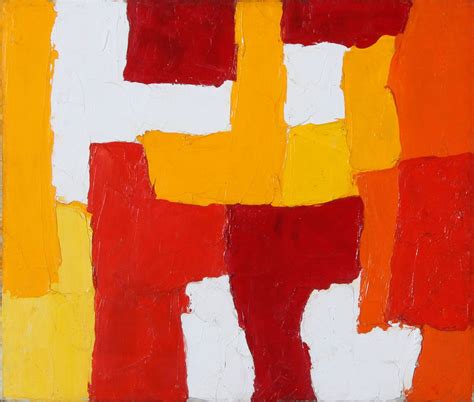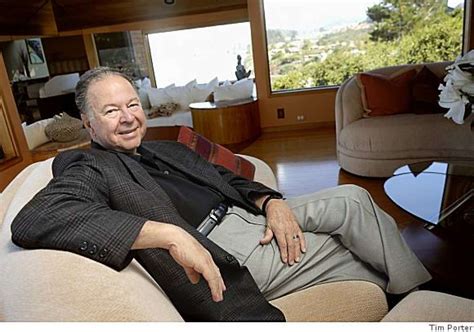A Quote by David Eagleman
When one part of the brain makes a choice, other parts can quickly invent a story to explain why. If you show the command "Walk" to the right hemisphere (the one without language), the patient will get up and start walking. If you stop him and ask why he's leaving, his left hemisphere, cooking up an answer, will say something like "I was going to get a drink of water."
Related Quotes
Experiments on split-brain patients reveal how readily the left brain interpreter can make up stories and beliefs. In one experiment, for example, when the word walk was presented only to the right side of a patient's brain, he got up and started walking. When he was asked why he did this, the left brain (where language is stored and where the word walk was not presented) quickly created a reason for the action: I wanted to go get a Coke.
You begin by engaging the left hemisphere of the brain with the overall shape, the basic structure of the painting, and then eventually you engage with the colour, with the mood of the painting and then you are entering the activities of the right hemisphere - and it is in the right hemisphere that ideas of space are born, the realization that you are seeing space.
The left hemisphere is very interested in language; it communicates in words, it has a past, a present, and a future; it has a time component and it's all about details. The right hemisphere is more about the right now-right here experience where everything is an enormous collage of all the sensory systems flooding into our brains.
The left hemisphere acts as an "interpreter," watching the actions and behaviors of the body and assigning a coherent narrative to these events. And the left hemisphere works this way even in normal, intact brains. Hidden programs drive actions, and the left hemisphere makes justifications. This idea of retrospective storytelling suggests that we come to know our own attitudes and emotions, at least partially, by inferring them from observations of our own behavior.
Filmmaking is like any kind of art form. You have to try to figure it out, and you're going to do that by trying. It's like teaching a child to walk. It may start by walking, but eventually it will fall. And I have kids, but I know that that will enable them to stand up again and understand why they fell, and how they can avoid that. They will walk better and faster, and stronger. Filmmaking is the same.
Sacred play is anything that takes you into that right hemisphere of your brain. It turns out that this move away from left to the right hemisphere, that sense of expansiveness and everything, can be accomplished through unusual rhythmic action, or any action that requires so much attention away from words that you cannot think in words.
If there's any guy crazy enough to attack me, I'm going to show him the end of the world -- close up. I'm going to let him see the kingdom come with his own eyes. I'm going to send him straight to the southern hemisphere and let the ashes of death rain all over him and the kangaroos and the wallabies.
But why should you be interested in me?" Good question. I can’t explain it myself right this moment. But maybe – just maybe – if we start getting together and talking, after a while something like Francis Lai’s soundtrack music will start playing in the background, and a whole slew of concrete reasons why I’m interested in you will line up out of nowhere. With luck, it might even snow for us.
I wanted to say something to cheer her up. I had a feeling that cheering her up might be a lot of work. I was thinking of how sometimes, trying to say the right thing to people, it’s like some kind of brain surgery, and you have to tweak exactly the right part of the lobe. Except with talking, it’s more like brain surgery with old, rusted skewers and things, maybe like those things you use to eat lobster, but brown. And you have to get exactly the right place, and you’re touching around in the brain but the patient, she keeps jumping and saying, “Ow.
When you read a book, you generate beta waves irrespective of the book's content. But if you look up from it, and start watching TV - it doesn't matter what the content of the program is - the beta waves disappear and you start processing alpha and theta waves. These are the same waves that you generate during meditation. Reading is primarily left hemisphere and watching television is primarily right hemisphere. Now how could that not have a major effect on our culture?
Why prove to a man he is wrong? Is that going to make him like you? Why not let him save face? He didn't ask for your opinion. He didn't want it. Why argue with him? You can't win an argument, because if you lose, you lose it; and if you win it, you lose it. Why? You will feel fine. But what about him? You have made him feel inferior, you hurt his pride, insult his intelligence, his judgment, and his self-respect, and he'll resent your triumph. That will make him strike back, but it will never make him want to change his mind. A man convinced against his will is of the same opinion still.
Will you keep going when you don't know why? When you can't get any answers that would make the pain go away, will you still say, 'My Lord,' even though his ways are not clear to you? Will you keep going-with all the grace and grit and faith you can muster-and live in hope that one day God will set everything right. Will you trust that God is good? ... Ultimately, the choice everyone faces is the choice between hope and despair. Jesus says, 'Choose hope.'


































